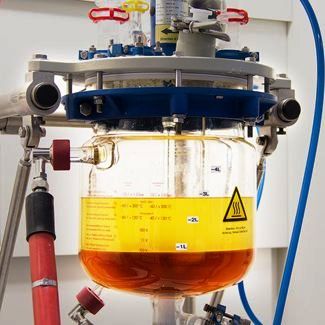 A UKOOG (United Kingdom Onshore Operations Group) commissioned report prepared by Ernst & Young (EY) published on April 24 underlines that the development of shale gas in the UK could create a £33bn investment opportunity for British business with the potential to create over 64,000 jobs.
A UKOOG (United Kingdom Onshore Operations Group) commissioned report prepared by Ernst & Young (EY) published on April 24 underlines that the development of shale gas in the UK could create a £33bn investment opportunity for British business with the potential to create over 64,000 jobs.
The report, titled “Getting Ready for UK Shale Gas”, forecasts that to drill up to 4,000 laterals (horizontal wells) over an 18-year time-frame, the industry will need to spend in the region of £33bn in supply chain activities. The study further estimates that at its peak, this supply chain can be the source of around 64,000 jobs directly linked to shale gas exploration sites, indirectly in the supply chain, or supporting services as a result of this new investment activity. However, the study warns that the UK needs to work now to lay the foundations for the necessary infrastructure, supply chain standards and skills requirements before developers look overseas.
The study was commissioned to answer three important questions. Firstly, what will it take to build a shale gas pad in the UK in terms of supply chain and skills; secondly, what are the capabilities in the UK to do so; and finally, what would be needed in order to fill the gaps and to stimulate the supply chain and skills the UK already has.
Chris Lewis, Partner Advisory Services at EY and the author of the report, says, “Our study shows that the opportunity from shale gas in the UK is at such impressive scale. This is a unique opportunity to secure the future of next generations of energy users, but industry and Government need to take action now for the necessary infrastructure, supply chain standards and skills to be ready in time.”
Ken Cronin, chief executive of UKOOG, said, “We are building an industry in this country which will not only potentially give the UK energy security and make a big contribution in tax revenues but will also bring immense benefits to other industries and create sustainable, well-paid jobs.”
The findings of the study reveal the following potential for UK industry:
Specialised equipment and skills for hydraulic fracturing totalling £17bn
This includes equipment such as pumps, trucks and blenders, which today are supplied to the industry by third parties and only partially from the UK. This sector provides a massive opportunity for UK-based oilfield service and manufacturing companies to get involved.
A £4.1bn waste, storage and transportation requirement
More work is required by industry, Government and regulators to understand what is possible with respect to localised and centralised services. In addition, investment will also be needed in order to bridge the gap as the industry grows.
A £2.3bn steel requirement in the UK
The industry will need over the next years some 12,600km of steel casing of specific diameter and quality, enough to go from Land’s End to John O’Groats some nine times. The report confirms that the UK has the ability to produce this amount at the right quality, but further research and development is required to make it a reality.
The potential for a new £1.6bn rig manufacturing industry
The industry will need up to 50 landward rigs at peak drilling activity and a number of work-over rigs. Despite having the capability, UK fabricators are likely to need some initial support to bridge the gap between the current and the anticipated market requirement, in order that these rigs are ready in the right timescale and can be supplied from the UK.
A new market for existing UK businesses
The UK currently produces a number of the key components that will be vital for the UK shale industry including cement, sand, drilling fluids and transportation. Despite no theoretical supply constraints, these companies will need to be kept informed and the shale industry will need to work on ensuring standardised practices and common infrastructure are planned and agreed.
Over 64,000 jobs employment opportunity and a requirement to grow skills
Over 64,000 semi-skilled and skilled jobs will be needed at peak. These include highly-skilled direct site development roles, with above-UK average salaries, direct jobs in the supply chain, and induced jobs as a result of the investment in the supply chain. The report confirms that the UK has historically had a strong capability in highly skilled engineering and geosciences; but there is now evidence of an ageing workforce and gaps, driven by the downturn and lower investment during the years of low oil prices in the 1990s.The UK will need to standardise skill requirements and create a national institute of skills in order to address shortages and to provide the right opportunities for existing qualified personnel.
The report recommends that the oil and gas industry needs to act now to prevent shale gas supply chain and skills constraints and that industry groups, developers and government need to work together to:
- Define an investment case to develop required skills at pace
- Define common pad and hydraulic fracturing standards, setting detailed specifications for UK suppliers
- Encourage investment for UK-based capabilities in specialised areas like steel, rigs, hydraulic fracturing equipment as well as shared infrastructure for water treatment, waste disposal and gas processing.
Chris Lewis added, “The current lack of a clear framework standardising the approach towards shale gas exploration as well as the lack of relevant skills need to be addressed to unlock further investment. Putting a good launch pad in place so we are ready to push the green button and start exploring the UK’s reserves should be on top of our to-do list. This is how we will ensure that the UK can turn billions of pounds currently spent on gas imports into revenues for local communities.”
Ken Cronin further added, “The industry and the Government will need to work together in order that the recommendations of this report are fulfilled. If the UK takes advantage of this opportunity many of its companies will be in a favourable position as other countries in Europe develop their own shale gas industry. It is early days and we have a lot of work to do in terms of working with the communities involved, understanding geology, flow rates and the cost base. Keeping the economic benefits in the UK of the supply chain is not a given, but the potential level of benefits as highlighted in this report should make it an economic imperative that we should.”
Click here to read/download the Full Report.
Source: E&Y.














